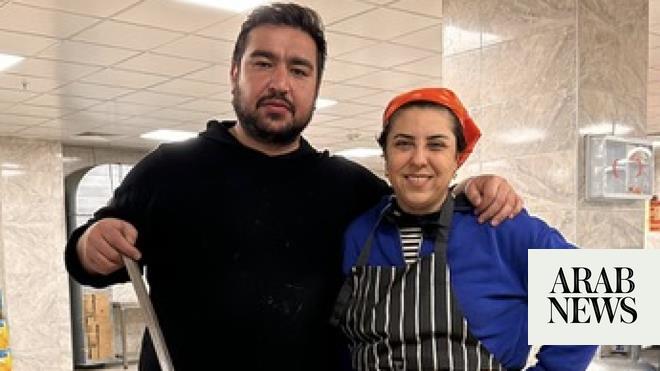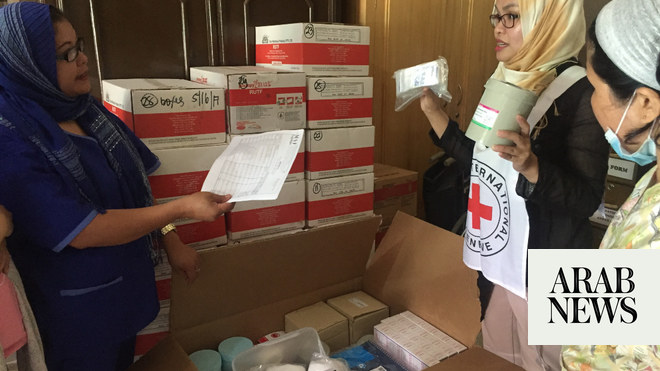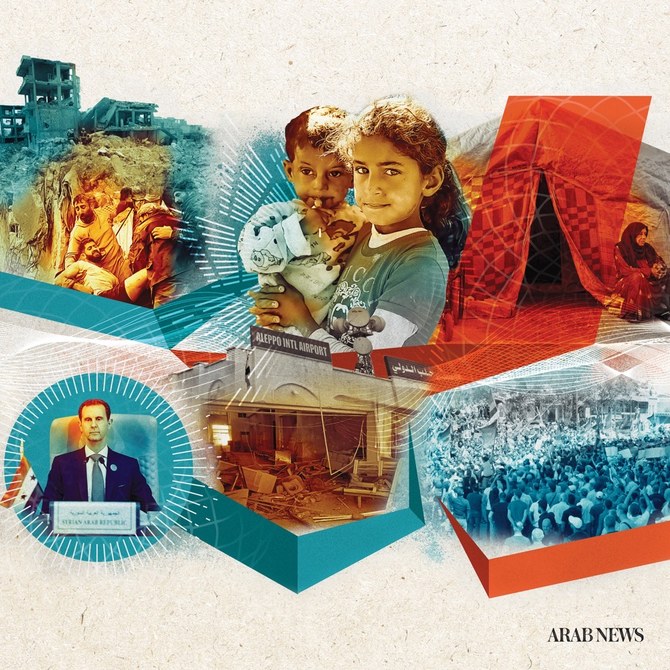
Female aid workers and volunteers have come together to help earthquake victims in Turkiye and Syria
Natural disasters often provide an opportunity for supporters of women’s empowerment to take action
DUBAI: In the midst of conflicts and natural disasters, women are often viewed as a particularly vulnerable and even helpless demographic. In fact, UN statistics show that women and children are 14 times more likely to die in natural disasters than men.
Nevertheless, recent natural disasters, such as floods in Pakistan and earthquakes in both Turkiye and Syria, have shown how women’s empowerment has enabled them to take on leading roles in their communities after destructive catastrophes.
Even in societies in which there are social restrictions on women’s movement, women have risen to the challenges presented by these tragedies.
In the wake of the Feb. 6 earthquakes in southern Turkiye and northern Syria, which left tens of thousands dead and hundreds of thousands homeless, dozens of women joined relief workers who rushed to disaster zones. Other women volunteered to help with the distribution of food and aid, working with organizations and even creating their own ad-hoc groups.
Other women work tirelessly to prepare hot meals in the cold weather for the victims of the quake, such as Turkish Social Gastronomy Chef Ebru Baybara Demir.
When news arrived of the earthquake that laid waste to large areas of Turkiye, Demir was attending business meetings in Istanbul. Her city, Mardin, was hard-hit by the quake.
Almost immediately, Demir and her colleague and fellow chef Turev Uludag began cooking to feed people in the earthquake-stricken city of Osmaniye. A soup kitchen was established at the dormitory kitchens of the Ministry of Youth and Sports in the city, and the team of volunteers cooked 25,000 meals on the first day alone.
“The first day, we worked in a serious hurry,” Demir told Arab News. “Volunteers for cooking, washing, preparing food as well as food ingredients were needed, so we started to make announcements. Our friends, chefs, and volunteers from different cities began to come. Brands have started to support food and logistics and other materials that we need. Sustainability of support was very important.”
Once the cooking system was well established in the city, the two chefs moved to three other cities damaged by the earthquake: Kahramanmaras, Iskenderun and Adiyaman. In total, nearly 350,000 meals are being distributed every day in the four cities.
“Women, men, children, and old and young people are working hand in hand to help everyone together. But I know that women will save this world,” Demir said.
The earthquake killed about 42,300 people in Turkiye, with economic losses in the country estimated at $25 billion.
In neighboring Syria, women are also playing an important role in saving their communities.
“For me, there is a big change (happening),” Syrian nurse midwife Najah Khaled told Arab News. After the earthquake struck her country, Khaled volunteered to offer medical services to those in need as part of a team that consists of two medical doctors, two nurses, and a pharmacist.
After the earthquake, Khaled put her medical studies in her native Azaz, north of Aleppo, on hold to travel daily to the earthquake-hit Jinderis, a town in the Afrin region in the country’s northwest.
“In life, there are things that become much more important than chasing your own personal interests, or asking about things that become unimportant in difficult times,” she said.
“Women know exactly what kind of problems families face. Women do sense problems that other women, particularly those who are in a weaker position, suffer from. Such problems frustrate women and make them lose their ability to make decisions.”
Nearly 9 million people in Syria have been affected by the earthquake, which completely or partially destroyed 7,400 buildings, according to UN figures. The natural disaster, which coincided with a harsh winter in the region as well as a cholera outbreak, added to the challenges of humanitarian aid provision in a country destroyed by more than a decade of war.
“If we really support women’s empowerment, then this is the time to act,” E.A., a Syrian female aid worker who asked to remain anonymous due to her belief that good deeds are not for publicity, told Arab News.
“For the first time in Syria, there are women among the members of the civil defense teams that carry out the rescue operations and pull people from under the rubble,” she said.
E.A. was forced to halt her pursuit of higher education because of the Syrian war, and started working on programs to build confidence among women and teach them skills to help them generate income for their families.
“I have been working with women (for the past several years), and if at this stage if I don’t assist women in having what they need, then honestly there is no need for me in normal times,” said E.A, who lives in the Afrin region and travels daily to Jinderis to volunteer and assist others.
“I feel I have a responsibility toward those who were affected. Afrin was also hit by the earthquake, but I wasn’t affected by it, so I feel I have to help those in need,” she said.
E.A leads a team of seven young women and men who are funded by individual donations from inside and outside Syria. The group provides basic needs to earthquake victims, including clothes, medication, and sanitary pads.
The group searches for individual cases that slip under the radar of aid initiatives as well as those who do not explicitly ask for help. They also assist in setting up tents, building bathrooms near tents erected by those left homeless by the earthquake, and offer cash assistance to those who need to repair their damaged homes. Other groups work on providing basic services, such as electricity and water.
“However, the most difficult thing, I believe, is that people who lost their beloved ones don’t have time to grieve, and they don’t have any place to go,” E.A. said. “Women try to be strong and show strength.”












